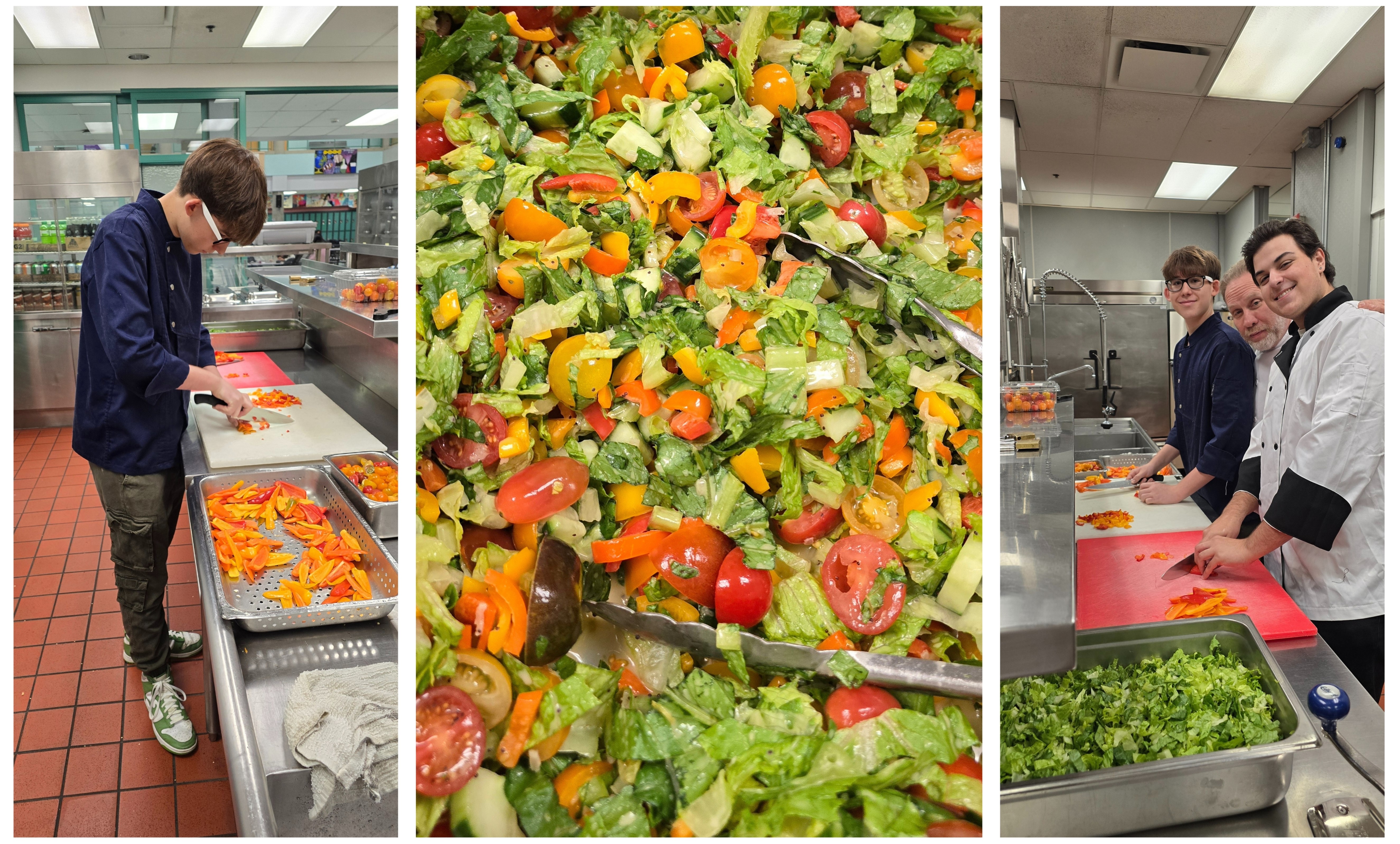
Teacher Champion - Shon De Vet
In this issue of our BCAITC Teacher Champion series, we profile BC teacher Shon De Vet. Discover his passion for educating students about BC agriculture, food, and the environment.
Q: What school do you teach? A: I teach at Fleetwood Park Secondary in Surrey B.C.
Q: What grade(s) do you teach? A: I teach culinary Arts students from Grades 10 to 12.
Q: How and when did you first learn about BCAITC? A: I first heard about BCAITC 5 years ago when I started teaching at Frank Hurt Secondary School.
Q: How long have you been teaching students about BC agriculture and food? A: Since I began my teaching career, I have consistently integrated BC agriculture and food into my program. With six years of experience teaching culinary arts and a lifelong passion for the food industry that dates back to when I was just nine years old, I have always believed in the importance of connecting students with the origins of their food. As a Red Seal chef since 1992, I strive to impart not only culinary skills but also a deep appreciation for BC agriculture and the vital role it plays in our food system.
Q: What are the most important things that you want your students to learn about BC agriculture and food? A: As a teacher, I believe it's important to teach students about BC agriculture because it connects them to local food systems, the economy, and sustainable practices. Understanding where our food comes from fosters healthier choices and respect for Indigenous traditions. It also helps students think critically about environmental issues and introduces them to potential careers in agriculture. By learning about local farming, they gain a deeper appreciation for the land and how we can all contribute to a more sustainable future.
Q: BCAITC has over 500 free downloadable resources including lesson plans, activities, videos, recipes, and more! What is your favourite BCAITC resource and why? A: I find it hard to choose just one resource as they are all helpful tools within my classroom. I do love BCAITC’s recipes as a reliable source for my students.

Q: What is your favourite BCAITC program and why? A: Take a Bite of BC is a wonderful program! It beautifully opens the door to a world of culinary experiences, allowing students to explore and engage with a variety of fresh, local products that many students have never seen, touched, or tasted before. This program not only ignites curiosity but also fosters a deeper appreciation for the richness of BC's agricultural offerings. By introducing students to such a vibrant variety of foods, Take a Bite of BC encourages them to embrace healthy eating habits and cultivates a lifelong love for local produce, making it an invaluable resource in our educational initiatives.
Q: Describe an agriculture or food-based project/program you have implemented in your classroom/school recently. A: One of the exciting food-based projects my classroom participated in last school year, which we’re eager to continue this spring, is the "Farm-to-Table Culinary Garden." Led by Mrs. Bernadette Mullen, this hands-on initiative immerses students in the entire food production process—from growing fresh ingredients in the garden to preparing nutritious meals in the kitchen. Through this project, my students gained insights into sustainable agriculture, the importance of nutrition, and essential culinary skills. It fosters a strong connection to food while empowering students with lifelong skills and a deeper appreciation for the food system.
Q: Do you have any advice for other educators on how to integrate agriculture and food education into their curriculum? A: I believe that every school has its own unique demographic, and each student requires a tailored approach to learning. Personally, I enjoy teaching my students about the history of the foods we eat and how various cultures have shaped them. I feel it is particularly vital to highlight the significant contributions of Indigenous communities to our culinary traditions, as their knowledge and practices offer invaluable insights into sustainable agriculture and the importance of respecting our natural resources. By integrating these elements into the curriculum, educators can create a more holistic and meaningful learning experience that resonates with students and helps them appreciate the broader context of food in our lives.
About the Teacher Champion Series: This monthly BCAITC series features BC teachers and school staff who are passionate about providing agriculture and food education to K-12 students. For more information, contact BCAITC Communications Coordinator, communications@aitc.ca.
